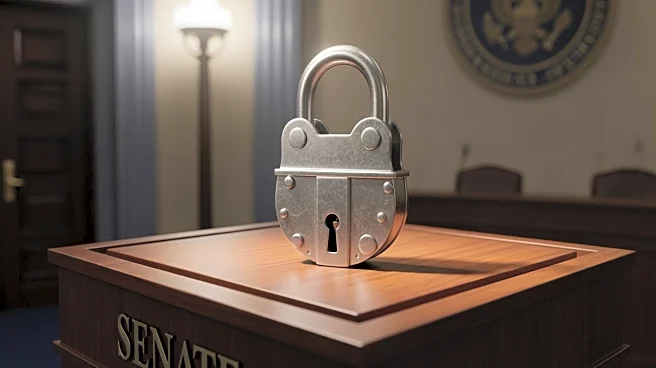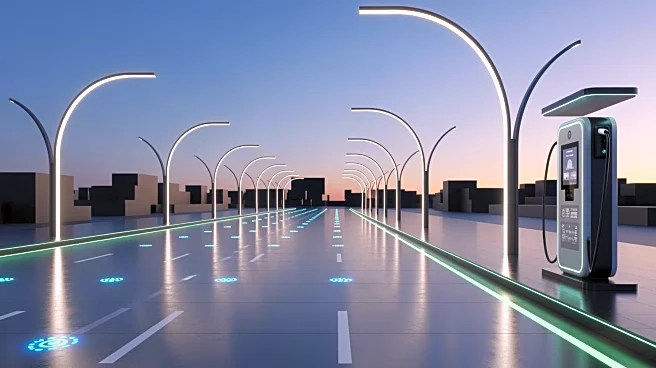What's Happening?
The U.S. government shutdown continues as House Speaker Mike Johnson maintains a firm stance against Senate efforts to reach a resolution. The Senate has been actively seeking a compromise to extend enhanced tax credits for the Affordable Care Act's marketplace,
a move that Democrats argue is essential to prevent families from losing food aid. However, Johnson has kept the House out of session for over a month, insisting that the House has already fulfilled its duty by passing a 'clean' resolution to keep the government open without extending subsidies. This has led to frustration among both Democrats and some Republicans, who see the lack of progress as a failure to address the needs of the American people.
Why It's Important?
The ongoing government shutdown has significant implications for U.S. politics and public policy. The deadlock affects millions of Americans who rely on government services and benefits, such as healthcare subsidies and food aid. The impasse also highlights the deep partisan divisions within Congress, with Democrats pushing for continued support for the Affordable Care Act and Republicans resisting further government spending. The situation underscores the challenges of governance in a polarized political environment, where compromise is difficult to achieve. The outcome of this standoff could influence public perception of both parties and impact upcoming elections.
What's Next?
As the shutdown persists, pressure is mounting on both parties to find a resolution. Democrats are calling for President Trump to engage in negotiations, believing his involvement could break the deadlock. However, Republicans argue that the president's participation is unnecessary at this stage. The situation may evolve following upcoming elections in New Jersey and Virginia, which could shift political dynamics. Both parties are likely to continue strategizing to gain leverage, with potential implications for future legislative negotiations and the broader political landscape.















